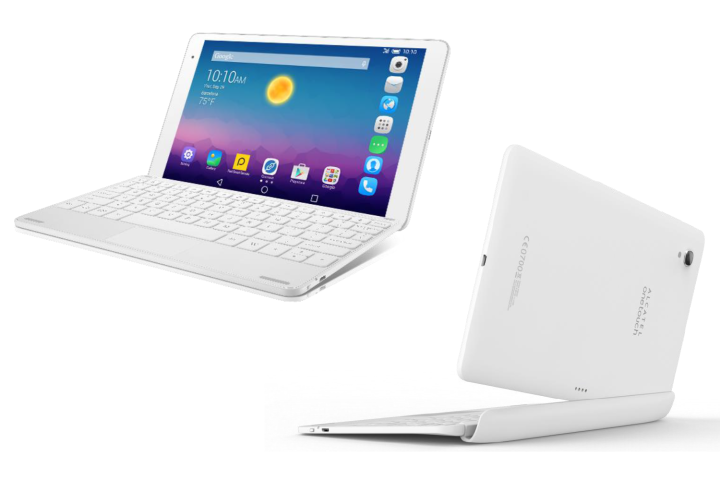
As the name would suggest, this tablet has a 10-inch IPS display and Alcatel is talking up the fact that it’s incredibly slim and light. It has a svelte 7.9mm profile, and weighs in at just 400g. There’s a soft-touch coating on the back and it is slim, but the camera lens protrudes slightly.
It runs the latest Android 5.0 Lollipop with a lightweight Alcatel skin over the top. It boasts a quad-core processor, eight gigabytes of storage, a five megapixel main camera, and a two megapixel front-facing camera.
This tablet supports the latest 4G LTE connectivity and it can handle voice calls. The design enables it to double up as a laptop with an ergonomic keyboard that it clips into. There’s also a docking station. The accessories don’t end there because Alcatel offers OneTouch Link to sync your smartphone and tablet, and OneTouch Connect, which is apparently a Bluetooth-enabled phone for answering calls and reading emails.
Alcatel hasn’t released full specs or pricing, but it’s a budget brand so we expect the POP 10 to be very affordable.
The tablet is part of the POP family which includes the Alcatel POP 2 smartphones, announced back in September last year, but just released last month. They’re available in a range of colors and screen sizes (5-inch, 4.5-inch, and 4-inch) and they offer 4G LTE to the mass market at low prices. They all have 1.2GHz quad-core processors, but the 5-inch variety has an 8MP camera and Android Lollipop, whereas the other two run Android 4.4 and sport 5-megapixel cameras.
We’ll bring you more details just as soon as we get them.


